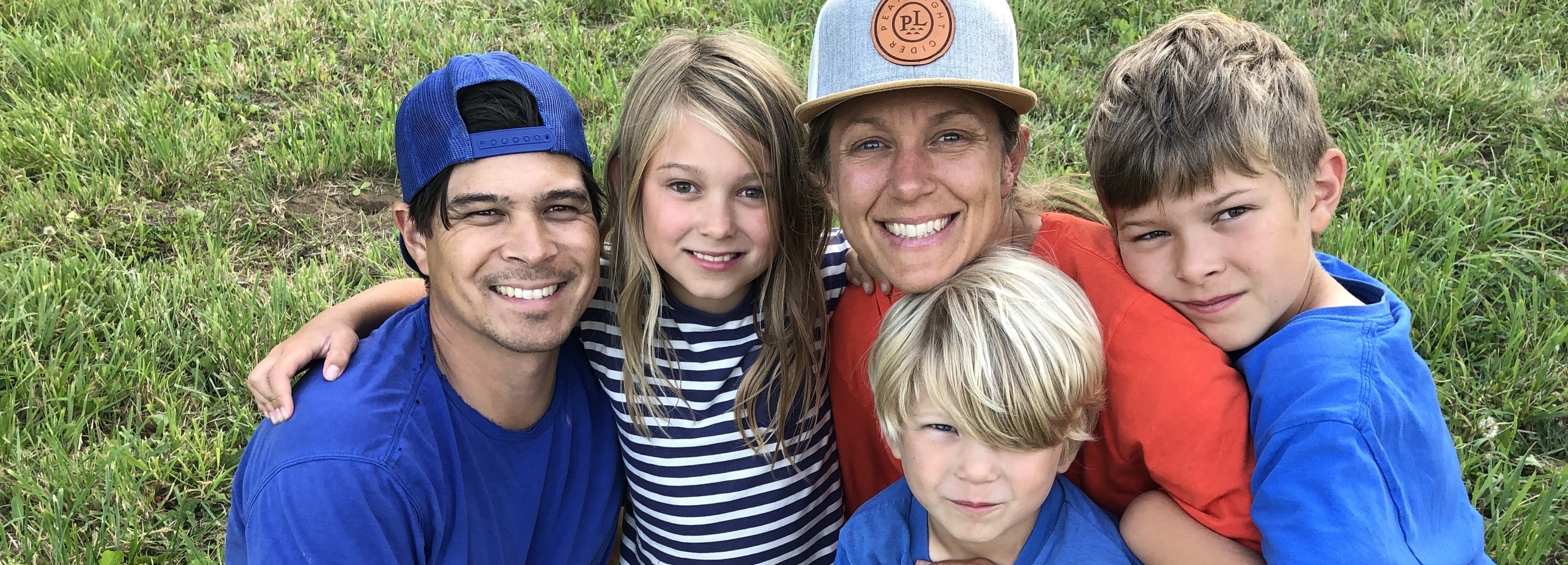I was born into the Pacific Northwest's wide landscapes and mountain views, with the smell of land changing seasons, and working alongside my family on our ranch in Eastern Washington. I knew when I moved here to Oregon that these landscapes are where I wanted to make a difference. I am in awe of the geological swath of the Columbia Gorge and the lasting space it captures in people’s hearts.
We likely all relate to the uniqueness of the Gorge land and ecosystem. But we need common efforts to bring us together, and increasingly now. Land and conservation of land can potentially do that unifying work because it is not about us as individuals but it is about something bigger—land conservation that speaks to generational legacy and hope for the future. The work of Friends of the Columbia Gorge brings us together around place, this place many of us consider home—plants, animals, rocks and minerals, fungus, and micro bacteria living in reciprocity of a place all call home.
My husband and I are raising three kids here. Parenting is full of self-reflection, humility, unbridled stop-you-mid-stride in wonder, but nothing is as tender as parenting, which has deepened my commitment to caring for the natural world. I think of the dormant seeds, the unfurling of pine pollen, the regeneration of forest floors, the wood wide web of mycelium intertwining under my feet as I take my kids hiking up Hamilton Mountain near Stevenson, Washington. This is generational interconnectivity, this exploration of connecting myself, and subsequently the next generation to the natural world and the synchronicity of connection I feel back. Simply, I believe in nurturing the Gorge, it nurtures us.
As Robin Wall Kimmerer writes in Braiding Sweetgrass, “This is really why I made my daughters learn to garden—so they would always have a mother to love them, long after I am gone.”
I feel similarly in cultivating my children’s relationship to the Gorge. In the face of deep social and ecological crisis, we are attuning back to the body, the land, our lived experience– in an effort to acknowledge the trauma of life, connect to the present, and reflect, ask, critique our way toward an embodied, connected, and deeply collaborative future with our larger living, natural world. And as a Friends board member, I feel it’s critical that our organization promotes both the interconnectedness between generations and ecosystems, and the interdependence of nature and urban settings.
For the last year, our board of directors has looked inward to examine our own board culture, practices, systems of power, and leadership with a diversity, equity, and inclusion perspective. We are bringing open hearts, unknowing, a re-learning attitude, vulnerability, and an ever tilt toward listening. Our DEI work will be interwoven and integral to our vision moving forward. It is beyond time to prioritize this ongoing organizational shift, which is critical so that everyone feels welcome in the Gorge and a part of our conservation impact together.

This is an extended version of an essay that appears in Friends' 2020-21 Annual Report. View Annual Report digital highlights.


